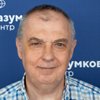In the Russian "patriotic" circles, there is an opinion that the August 1991 putsch was not an attempt by the Soviet party-state leadership to preserve the USSR but a political show played out by the "global backstage" precisely to ruin the Soviet Union. However, if it was a show, then the main actors "grew into their roles" too much. Say, one of the key actors, the Minister of Internal Affairs of the USSR Boris Pugo, shot himself after the failure of the putsch, having previously shot his wife. It was only one episode in a series of suicides of high-ranking Soviet officials that took place at that time.
Impartially speaking, it is true that the "coup of the State Committee on the State of Emergency" contributed to the collapse of the USSR, but this only confirms the rule: attempts to stop historical processes by force lead to their acceleration.
After the August 1991 coup, the collapse of the USSR was legalized, but the Soviet consciousness and mentality remained dominant even in Ukraine. Data of public opinion polls held in Ukraine in 1990–2000 showed a negative perception of the present and nostalgia for the Soviet system.
Say, according to the poll conducted by Razumkov Centre in July 2013 (the last year of Yanukovych's rule), assessing how fair Soviet society was and how fair modern Ukrainian society is on a scale from 0 to 10, where "0" meant "extremely unfair", and "10" — "completely fair", respondents rated the fairness of Soviet society much higher than in modern Ukraine (6.2 vs 4.0 points).
Subsequent events significantly changed not only the Ukrainians' assessment of the present but also their views of the past, including the perception of the USSR and the Soviet system.
Putin, who always treated his former boss and one of the main drivers of the August coup ("the State Committee on the State of Emergency putsch"), ex-KGB head Vladimir Kriuchkov with respect (the latter was even invited as an honoured guest to Putin's first presidential inauguration), followed the Emergency Committee members and also set for himself the goal of reviving the USSR. But it can also be said that he achieved the opposite result than he wanted to.
According to the recent poll conducted by Razumkov Centre at the end of May 2023, the Ukrainian citizens’ assessment of how fair Soviet society was fell to 3.1 points, while the assessment of fairness of modern Ukrainian society rose to 6.7 points.
The attitude of the Ukrainians to the Soviet past contrasts sharply with the attitude of Russian citizens. According to the results of a poll conducted by the Levada Center in August 2021, answering the question "Which political system seems best to you?", most Russians reported "the Soviet system that existed before 1990s." Only 18% of the polled Russians mentioned "the current system." That is, the image of the "ideal world" for ordinary Russians and for Putin himself has moved into the past, and they strive to return that past, including by invading Ukraine (because in the "beautiful past" it was "ours").
In Ukraine, the negative image of the USSR now prevails in those regions where nostalgia for the Soviet past seemed particularly strong. In the East of Ukraine, the fairness of the Soviet society is now estimated at 4.1 points, while the fairness of modern Ukraine — 6.0 points.
The attempt to play the card of "protection of the Russian population" also does not find the desired response in the minds of ethnic Russian citizens of Ukraine — on average, they rate the fairness of Soviet society at 3.9 points, while the fairness of modern Ukraine — 5.2 points.
While in Russia nostalgia for Soviet times clearly dominates among representatives of the older generation (62% of them consider the Soviet system the best, and only 14% say so about the modern Russian system), in Ukraine, even among representatives of the older generation, the assessment of the Soviet system is mainly negative: people at the age of 60 years and older rate the fairness of the Soviet society at 3.7 points, while the fairness of modern Ukraine — 6.4 points. As for younger people under 30, these estimates make 2.1 and 7.3 points, respectively.
Putin's desire to "return everything back" spoiled not only his personal image (according to the poll conducted by Razumkov Centre jointly with Ilko Kucheriv Foundation "Democratic Initiatives" last March, 94% of Ukrainians called Putin "Hitler today) but also the image of the social system that he is trying to recreate (especially its repressive component), including symbolically (by erecting monuments to Lenin and memorial plaques to former KGB functionaries such as General Sudoplatov in occupied Ukrainian cities).
So, thanks to Putin's efforts, the Sove will die sooner. And there are reasons to believe that Putin himself will follow suit.
- The article builds on the results of a public opinion poll conducted by the Razumkov Center Sociological Service on May 23–31, 2023, as part of the MATRA Program project funded by the Embassy of the Kingdom of the Netherlands in Ukraine. Assessments and conclusions of the authors of this study should not be seen as the official position of the Embassy.
- Face-to-face interviews were taken in Vinnytsia, Volyn, Dnipropetrovsk, Zhytomyr, Transcarpathian, Zaporizhia, Ivano-Frankivsk, Kyiv, Kirovohrad, Lviv, Mykolayiv, Odesa, Poltava, Rivne, Sumy, Ternopil, Kharkiv, Kherson, Khmelnytskyi, Cherkasy, Chernihiv, Chernivtsi regions and the city of Kyiv (in Zaporizhia, Mykolayiv, Kharkiv, Kherson regions — only in the territories controlled by the Ukrainian government and free of hostilities).
- The sample structure reproduces the demographic structure of the adult population of the territories where the poll was conducted as of the beginning of 2022 (by age, sex, settlement type).
- 2020 respondents above 18 years were polled. The sample theoretical error does not exceed 2.3%. At the same time, additional systematic deviations of the sample may be caused by the consequences of Russian aggression, in particular, forced evacuation of millions of citizens.
Source:
https://razumkov.org.ua/statti/zavdiaky-putinu-sovok-pomyraie-shvydshe




